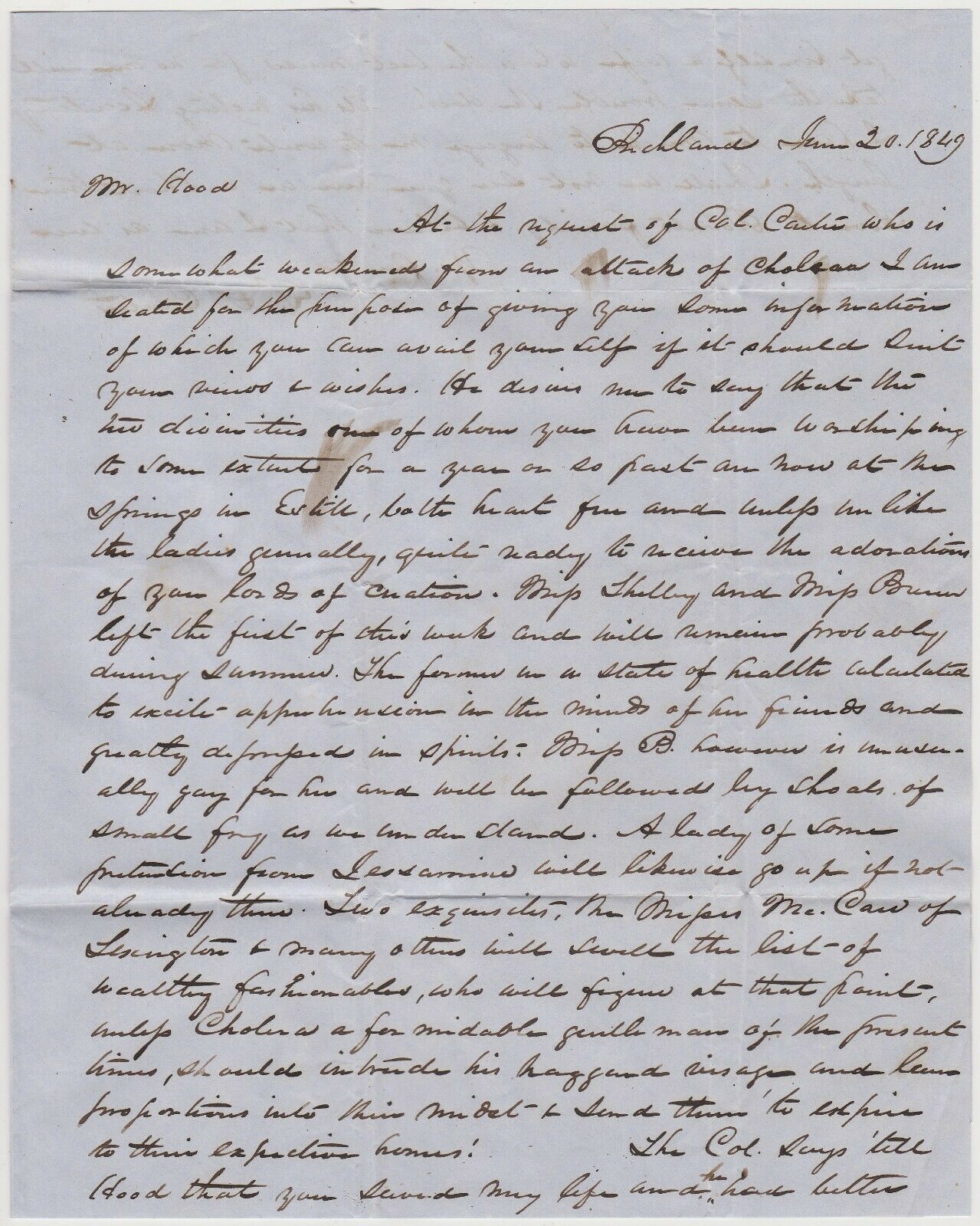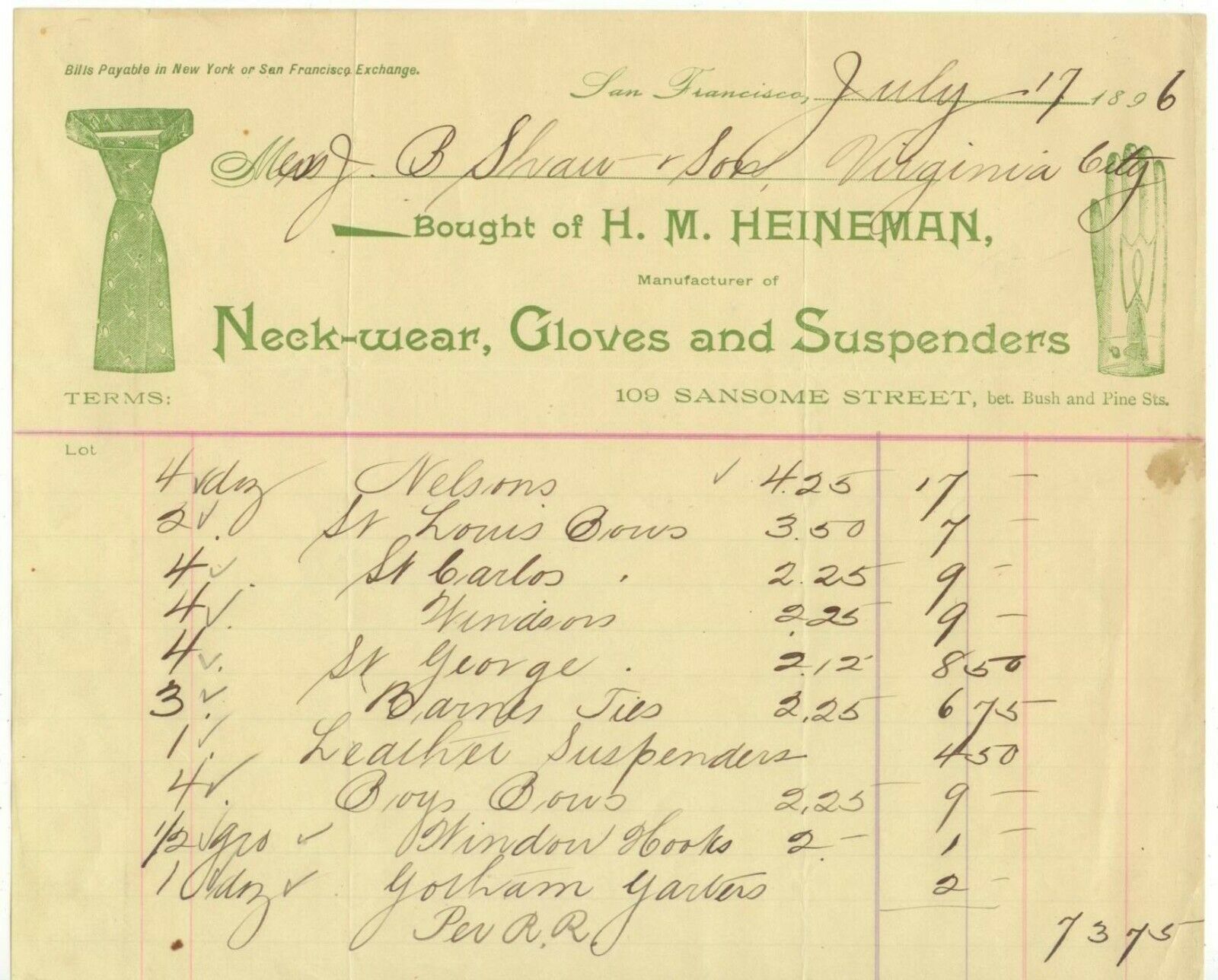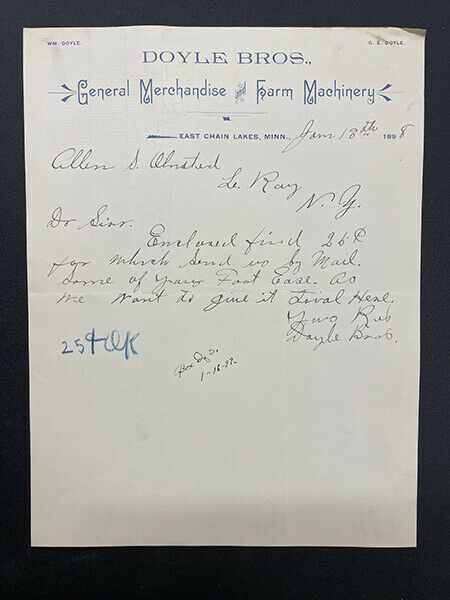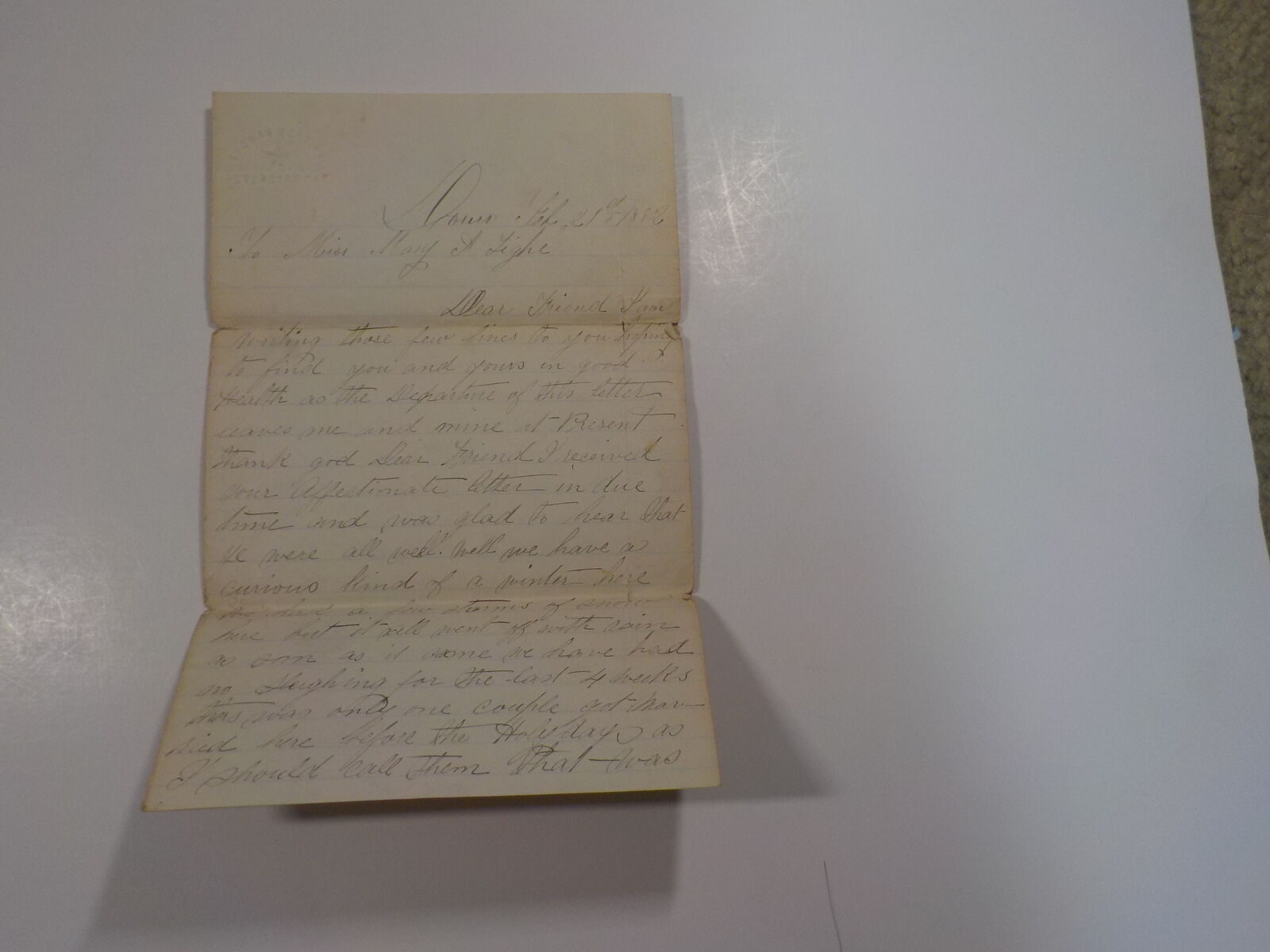-40%
1841 Signed Note by EDWARD CHURTON English Theologian/Scholar MONKS ELEIGH
$ 37.61
- Description
- Size Guide
Description
Attention Collectors!!!You are bidding on a hand-written, signed note by Edward Churton (1800 - 1874). The note is dated 1841. The note states that is was included with a copy of his new addition of his little contribution to English church history to pay a tribute to the memory of Brythnot, whom he supposed was the founder of their Church of Monks Eleigh. The note has closed tear at fold line.
About Edward Churton:
He was a theologian and Spanish scholar, was born on 26 Jan. 1800 at Middleton Cheney, Northamptonshire. He was the second son of Ralph Churton, archdeacon of St. David's [q. v.] He was educated at the Charterhouse and at Christ Church, Oxford, where he proceeded B.A. 1821, and M.A. 1824. After taking his degree he returned to his old school, and was for a few years an assistant-master under Dr. Russell. In 1830 he left the Charterhouse to become curate to the rector of Hackney, Archdeacon Watson, afterwards his father-in-law; and for a short period he was headmaster of the church of England school at Hackney. In 1834 Archbishop Howley gave him the living of Monks-eleigh in Suffolk, and eighteen months later Bishop Van Mildert bestowed on him the rectory of Crayke. At Crayke he remained till his death. In 1841 Archbishop Harcourt appointed him to the stall of Knaresborough in York Minster, and in 1846 made him archdeacon of Cleveland.
Although Churton left Oxford before the tractarian movement commenced, he was largely in sympathy with it. In the ‘Library of Anglo-Catholic Theology’ he took a deep interest, preparing for it an edition of Bishop Pearson's minor theological writings, and also one of the ‘Vindiciæ Ignatianæ,’ furnished with a Latin preface defending in a scholarly fashion the genuineness of the Ignatian epistles against modern critics. He was a contributor to the ‘British Critic,’ and when Mr. Burns brought out ‘The Englishman's Library,’ which was announced as ‘a series of volumes for general reading, which shall unite a popular style with sound christian principles,’ Churton and his friend W. Gresley were the editors, and the former contributed a volume on ‘The Early English Church.’ Churton was one of the 543 members of convocation who thanked the proctors for their attitude with regard to the proposed condemnation of ‘Tract XC.’ His views on church matters found full expression in his biography of Joshua Watson, the munificent and pious founder of the National Society.
From an early period Churton felt a keen interest in Spanish literature, an interest first kindled, as has been so often the case with Englishmen, by the perusal of ‘Don Quixote.’ In 1848 he printed ‘A Letter to Joshua Watson, Esq.,’ in which he proved (what had not been before remarked) that the ‘Contemplations on the State of Man’ published in 1684 as a work of Jeremy Taylor's was in reality a rifacimento of the English translation (1672) by Sir Vivian Mullineaux of the treatise by Nieremberg the Spanish jesuit, called ‘Diferencia de lo Temporal y Eterno.’ The study of Spanish was his favourite recreation, and for the amusement of his children he translated three plays of Calderon and Montalvan, as well as a number of ballads. He, however, visited Spain only once, in 1861, and, much to his disappointment, did not get further than the Basque Provinces, being driven back by the extreme heat. A paper called ‘A Traveller's Notes on the Basque Churches,’ printed in the sixth volume of the reports of the Yorkshire Architectural Society, was the result of this tour. The chief fruit of his Spanish studies was ‘Gongora, an Historical and Critical Essay on the Times of Philip III and IV of Spain, with Translations,’ 1862. The essay shows wide reading and a sound knowledge of the authors of the period, and it is decidedly the most valuable contribution that has been made since Lord Holland's day by an Englishman to the study of the golden age of Spanish literature. Like Bowle's ‘epoch-making’ edition of ‘Don Quixote,’ it was composed in a country parsonage, far from great libraries and without the advantage of a visit to Madrid or access to any collections of Spanish books beyond the author's own. It is accompanied by a series of translations executed with singular spirit not only from Gongora, but from Herrera, Villamediana, Luis de Leon, Calderon, and Cervantes. Of the translations from Gongora which form the bulk of the volumes, Ticknor, who was no admirer of the author of ‘Polifemo,’ remarks (
Hist. of Span. Lit
. 4th ed. iii. 26
n
.): ‘It is not in my power to accept as just Archdeacon Churton's admiration for Góngora, nor do I think that his translations, though very free, and often better than the originals, will justify it. But I have read few books on Spanish literature and manners with so much pleasure.’
After Churton's death in July 1874, a volume of ‘Poetical Remains’ was published (1876) by the pious care of his daughter, containing, besides a number of original poems, several versions from Spanish poets and also some from the Anglo-Saxon, of which he was a diligent student.
It would be great if this letter could find its way back to the Churton family or the Monks Eleigh Church archives!!!
This is a one-of-a-kind, rare and terrific item to add to a collection!
Great gift idea!
(Inventory: Autograph Closet, Envelope 12)
Track Page Views With
Auctiva's FREE Counter









